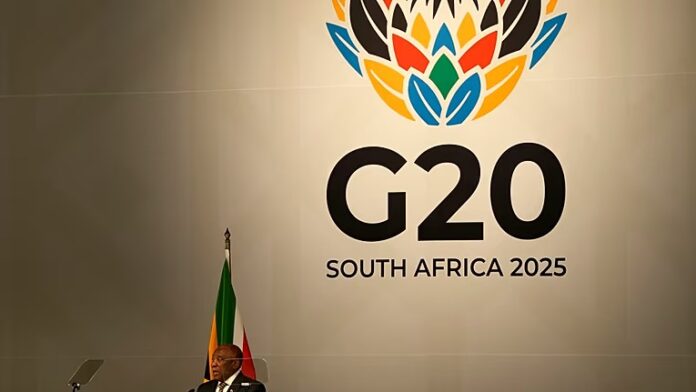In a move that has sent shockwaves through international diplomacy, the United States has announced it will boycott the upcoming G20 summit in South Africa. President Donald Trump made the declaration Friday, citing alleged abuses against white farmers—specifically Afrikaners—as the reason for the withdrawal. The decision marks a dramatic escalation in tensions between Washington and Pretoria.
Trump’s Claims and the Boycott Decision
President Trump, posting on his social media platform, called South Africa’s role as host “a complete disgrace” and reiterated claims that white farmers face “violence, death, and the seizure of their land and farms.” He confirmed that no U.S. officials, including Vice President JD Vance, would attend the summit.
This isn’t the first time Trump has raised concerns about South Africa’s land reform policies. He previously suggested that the country should be expelled from the G20 altogether—a proposal that drew widespread criticism from global leaders.
South Africa Responds: “Entirely Untrue”
South African President Cyril Ramaphosa responded swiftly, stating that he had personally informed Trump that the allegations were “entirely untrue.” Government officials expressed surprise and frustration, noting that white South Africans continue to enjoy a significantly higher standard of living than the Black majority, even decades after the end of apartheid.
The South African government has consistently denied claims of systemic violence or discrimination against white farmers, framing the accusations as politically motivated and disconnected from reality.
A Pattern of Friction
This boycott is the latest in a series of diplomatic clashes between the Trump administration and South Africa:
Earlier this year, Secretary of State Marco Rubio skipped a G20 foreign ministers’ meeting, objecting to its focus on diversity and climate change.
The administration’s refugee policy has also been shaped by this narrative, with a sharply reduced intake of 7,500 refugees annually—many of whom are expected to be white South Africans fleeing what the U.S. calls “discrimination.”
What’s at Stake?
The G20 summit is a critical forum for global economic cooperation. With the U.S. absent, consensus on key issues like climate finance, trade reform, and global debt relief could be harder to achieve. South Africa, meanwhile, faces increased scrutiny and pressure as it prepares to host world leaders amid controversy.
This diplomatic standoff raises broader questions about the politicization of human rights, the role of race in international relations, and the future of multilateral cooperation in an increasingly polarized world.

